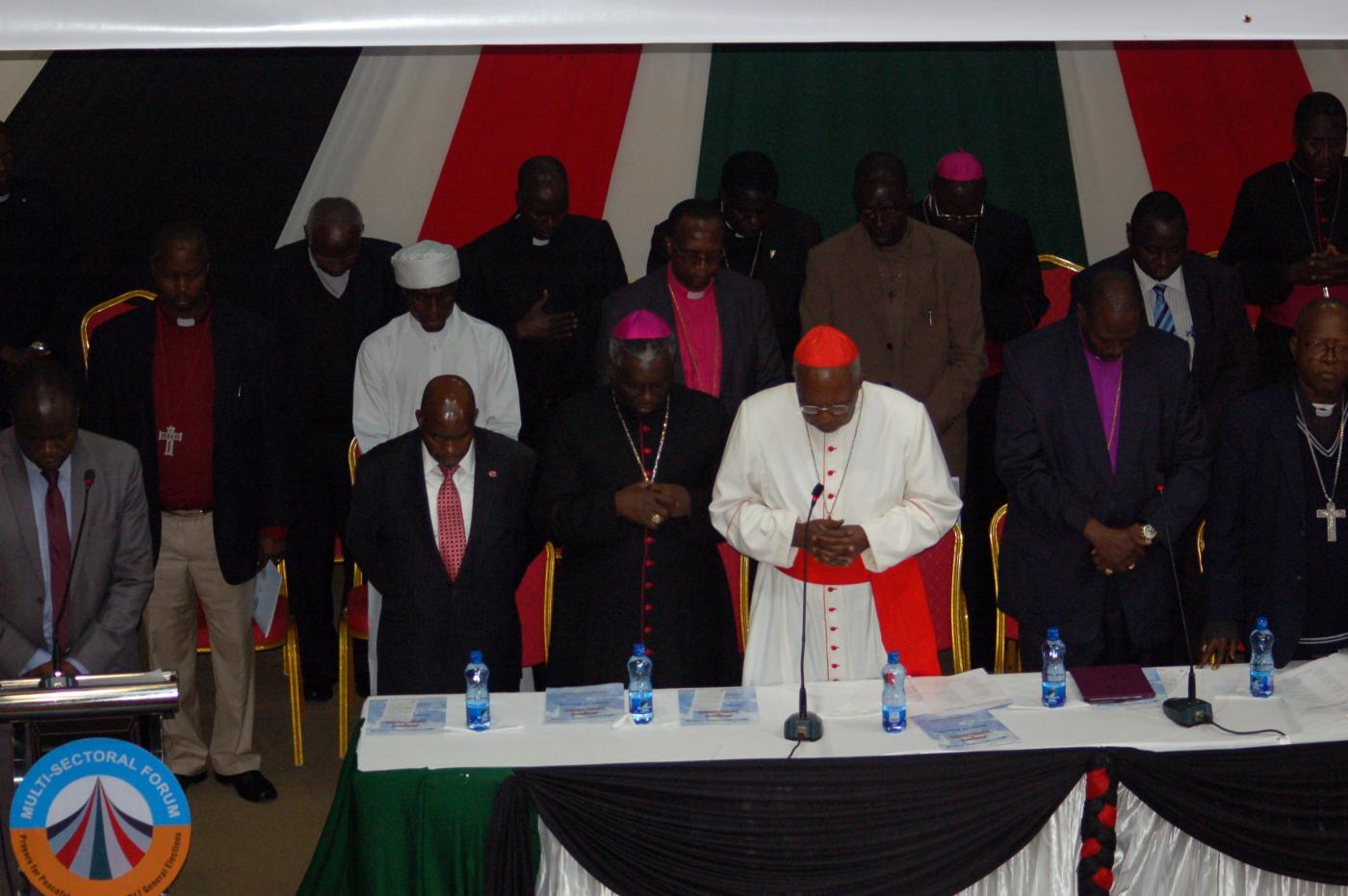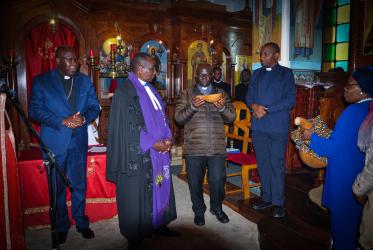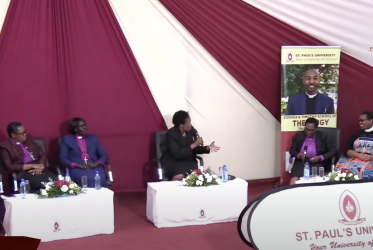* By Fredrick Nzwili
Church leaders in Kenya are urging peaceful voting and acceptance of results, in an effort to forestall violence during and after the general elections.
On 8 August, over 19 million voters will be casting the ballot to elect a president, senators, governors, women representatives and civic leaders in hotly contested elections. This is the sixth general election since declaration of multi-party democracy in 1992 and the second under a new constitution – agreed upon in 2010 - which is pegged on devolution of resources and good governance.
President Uhuru Kenyatta, a Roman Catholic, the leader of the Jubilee Party (JP) and Raila Odinga, an Anglican who leads the National Super Alliance (NASA), an umbrella opposition coalition are the front runners. The elections have attracted eight presidential candidates.
Analysts say the elections are significant for the citizens, but are also closely being watched in the region, where several countries are in conflict. For decades, Nairobi has acted as the pivot for UN and humanitarian agencies, which move humanitarian aid to the neighbouring countries in conflict. These include South Sudan, Somalia, Burundi and the Democratic Republic of Congo (DRC) whose relief operations are managed from the city.
As the campaigns entered the homestretch, church leaders were urging a large turnout, but as they stress free, fair and credible elections, fear over post-election violence has also heightened.
On Tuesday (2 August ), the National Christian Council of Kenya (NCCK) urged the frontrunners to calm the country, amid reports that residents fearing violence were moving from Nairobi, Nakuru, Eldoret and Mombasa cities to rural areas, where they hope they will safe.
“They (front-runners) must assure the country that the heated messages expressed in campaign rallies are political, not a provocation to violence and ethnic division,” said Rev. Canon Peter Karanja, NCCK general secretary in a statement.
The churches have been emphasizing peace and security as paramount during and after the elections. They have reminded Kenyans of their responsibility to reject any provocation to incite violence.
The churches, mosques and temples are neutral, according to the leaders, even though most leaders have a religious affiliation. The leaders have in the past been accused of accused of taking sides.
“The Kenyan churches do not have candidates, but their followers will vote for candidates that are on offer - some of them who are church members,” said Karanja in late July.
Months before the voting, religious leaders had taken to the pulpits, public forums and conferences to raise awareness about maintaining peace. They have also renounced hate speech, incitement and war mongering. These trends have occurred in campaign rallies, on TV and radio talk shows and on social networks such as blogs, Facebook and Twitter.
Ten years ago, the role of the faiths as peace makers registered strongly, when the groups found themselves compelled to deal with the aftermath deadly post-election violence, in which thousands were displaced from their homes.
At least 1,200 people were killed and over 600,000 forced into camps during violence that occurred between 27 December 2007 and 28 February 2008. The violence ignited after Mwai Kibaki, the incumbent president, was declared the winner and the main opposition leader Raila Odinga rejected the result as rigged. Now, Kenya cannot afford a repeat of the violence, the leaders say.
“It is very unfortunate that exercise of our democratic right, turns out to be such a fearful event,” said Rev. Connie Kivuti, general secretary of the Evangelical Alliance of Kenya (EAK).
“The right to make a democratic choice and decision ought to be done without fear,” stressed Kivuti.
She observed that Kenyans had turned to prayer this period more than any other time in the nation.
‘We have indeed prayed and each denomination has had their own time to rally their flock to offer prayers to God for peace in the elections,” she said.
According Roman Catholic Bishop Philip Anyolo, the chairman of the Kenya Conference of Catholic Bishops (KCCB), the Kenyan elections reflect a trend in Africa, where nations are embracing multi-party elections as mode of democratization and liberalisation.
“Despite hopes and praises… I have also have serious fears, in some circumstances of elections freedoms and democratic rights are actually in retreat,” said the bishop.
The bishop’s conference has send out pastoral letters stressing peaceful, credible and free elections.
“Sometimes, we have been accused of emphasising peace and sacrificed justice, but we want to remind that we have the mandate to make peace, seek peace and live peace… We saying that peace is condition without which we cannot achieve a credible election,” said Anyolo.
The clergy have committed to continue to reaching out to leaders from neighbouring communities to ensure peaceful relations, before, during and after. They will also seek to move communities beyond grievances and suspicion that have characterised past interactions.
* Fredrick Nzwili is an independent journalist based in Nairobi, Kenya.
Ahead of Kenya elections, concerns about peace emerge, WCC press release 3 August, 2017
National Council of Churches of Kenya (NCCK)
All Africa Conference of Churches (AACC)






